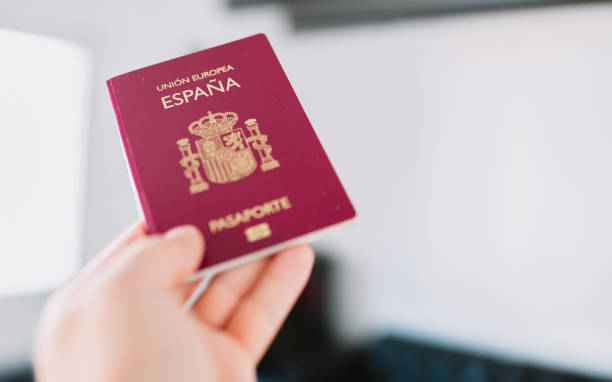Understanding the Different Types of Spain Visas
Spain, known for its rich culture, historical landmarks, and stunning landscapes, is a popular travel destination for individuals from around the world. However, before you pack your bags and set off on your Spanish adventure, it’s essential to understand the different Types of Spain Visas available based on your travel purpose. This guide will help you navigate the various visa options and their specific requirements.
What is a Visa?
A visa is an official document issued by a country that allows foreign nationals to enter, stay, or leave its territory for a specific purpose and duration. In the case of Spain, visas are necessary for various activities such as tourism, business, work, or study. The Spanish government, along with the embassies and consulates, plays a crucial role in issuing visas to applicants.
Types of Spain Visas
A. Schengen Visa (Type C)
The Schengen Visa, also known as a Type C visa, is a short-term visa that allows travelers to visit Spain and other Schengen countries for up to 90 days within a 180-day period. This visa is ideal for tourism, business trips, and family visits.
Requirements:
- A valid passport with at least three months of validity beyond your intended departure from the Schengen Area.
- A completed visa application form.
- Two recent passport-sized photographs.
- Proof of accommodation (hotel bookings or invitation letters).
- A travel itinerary, including round-trip flight bookings.
- Travel insurance covering a minimum of €30,000.
- Evidence of sufficient financial means to cover your stay.
B. Long-Stay Visa (Type D)
If you plan to stay in Spain for longer than 90 days, you will need a Long-Stay Visa (Type D). This visa is typically issued for various purposes, including work, study, family reunification, or retirement.
Requirements:
- A valid passport with sufficient validity.
- Completed visa application form.
- Supporting documents relevant to your purpose of stay (e.g., work contract, enrollment letter).
C. Student Visa
The Student Visa is a long-stay visa designed for individuals who wish to pursue their education in Spain. This visa is essential for anyone accepted into a Spanish educational institution for a duration exceeding 90 days.
Requirements:
- Acceptance letter from a recognized Spanish educational institution.
- Proof of financial means to cover living expenses and tuition fees.
- Health insurance that covers medical expenses in Spain.
- Proof of accommodation (such as a rental agreement).
D. Business Visa
The Business Visa allows individuals to travel to Spain for business-related activities such as attending meetings, conferences, or negotiations. This visa is necessary for foreign nationals engaging in business activities for a limited time.
Requirements:
- Invitation letter from a Spanish company outlining the purpose of the visit.
- Proof of business activities in Spain.
- Evidence of sufficient financial means.
- Travel insurance that meets Schengen requirements.
E. Family Reunification Visa
The Family Reunification Visa is available for family members of legal residents in Spain who wish to join their loved ones. This visa allows spouses, children, or dependent relatives to live in Spain.
Requirements:
- Proof of relationship (marriage certificate, birth certificate).
- Legal residency proof of the sponsor in Spain.
- Evidence of financial means and suitable accommodation.
F. Work Visa
If you have secured employment in Spain, you will need a Work Visa. This visa allows you to live and work in Spain legally.
Requirements:
- Job offer or work contract from a Spanish employer.
- Proof of qualifications and experience relevant to the job.
- Possible labor market test to ensure no qualified locals are available for the position.
G. Transit Visa
The Transit Visa is for travelers passing through Spain to reach another destination. This visa is typically valid for a short period and allows you to stay in Spain only while in transit.
Requirements:
- Valid visa for the final destination (if required).
- Confirmed onward travel arrangements (flight tickets).
- Proof of accommodation in Spain, if applicable.
How to Choose the Right Visa Type
Choosing the right visa type is crucial to avoid delays or rejections in your application. Consider the following factors:
- Purpose of Travel: Clearly identify the main reason for your visit (tourism, work, study, etc.).
- Length of Stay: Determine how long you plan to stay in Spain.
- Documentation Requirements: Review the specific documentation needed for each visa type to ensure you have everything ready.
General Application Process
Regardless of the visa type, the application process generally involves the following steps:
- Determine Visa Type: Identify the visa category that aligns with your travel purpose.
- Gather Required Documents: Collect all necessary documents as per the selected visa type.
- Complete the Application Form: Fill out the relevant visa application form accurately.
- Book an Appointment: Schedule an appointment at the nearest Spanish consulate or VFS Global center.
- Attend the Appointment: Submit your application and documents in person.
- Await Processing: After submission, wait for your application to be processed and collect your visa once approved.
Conclusion
Understanding the different types of Spain visas is essential for anyone planning to travel to this beautiful country. By selecting the appropriate visa based on your travel purpose and ensuring all documentation is accurate, you can streamline the application process and enjoy your Spanish adventure without hassle.
If you have any questions or experiences to share about the Spain visa application process, feel free to leave a comment below!
Call to Action
Don’t forget to subscribe to our blog for more travel tips and updates on visa requirements. Share this post with friends who may also be interested in traveling to Spain!


